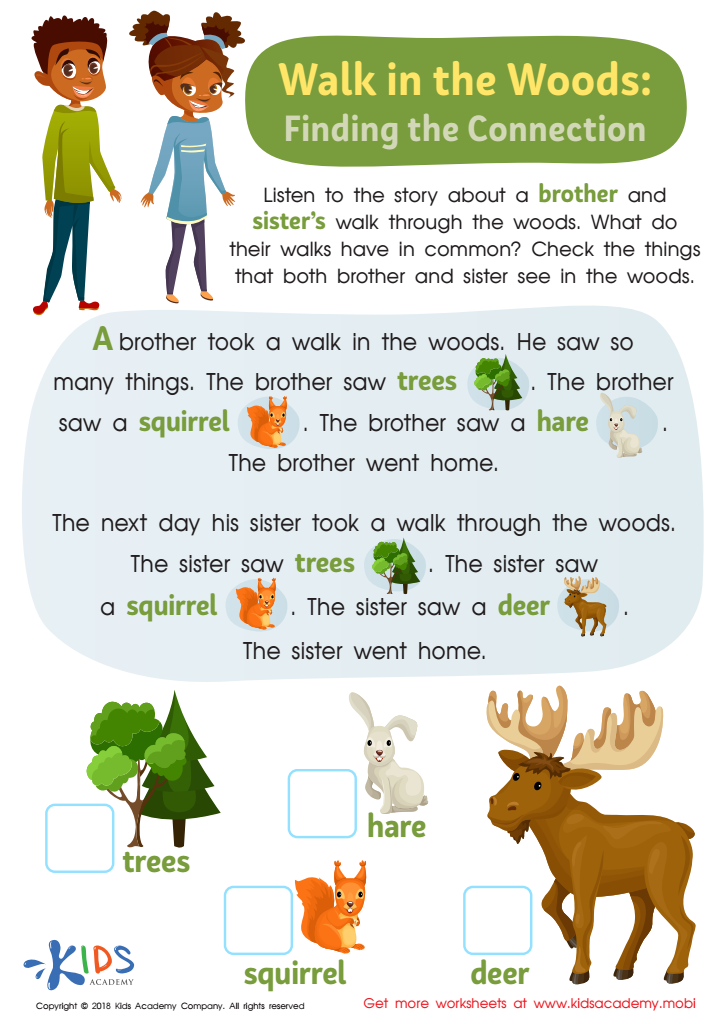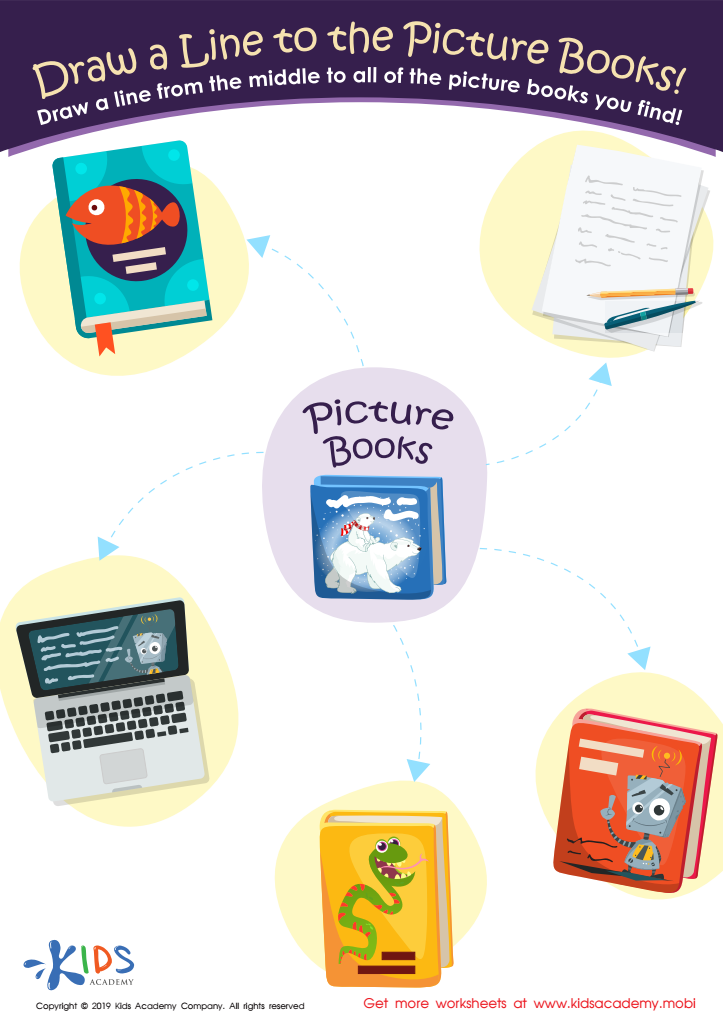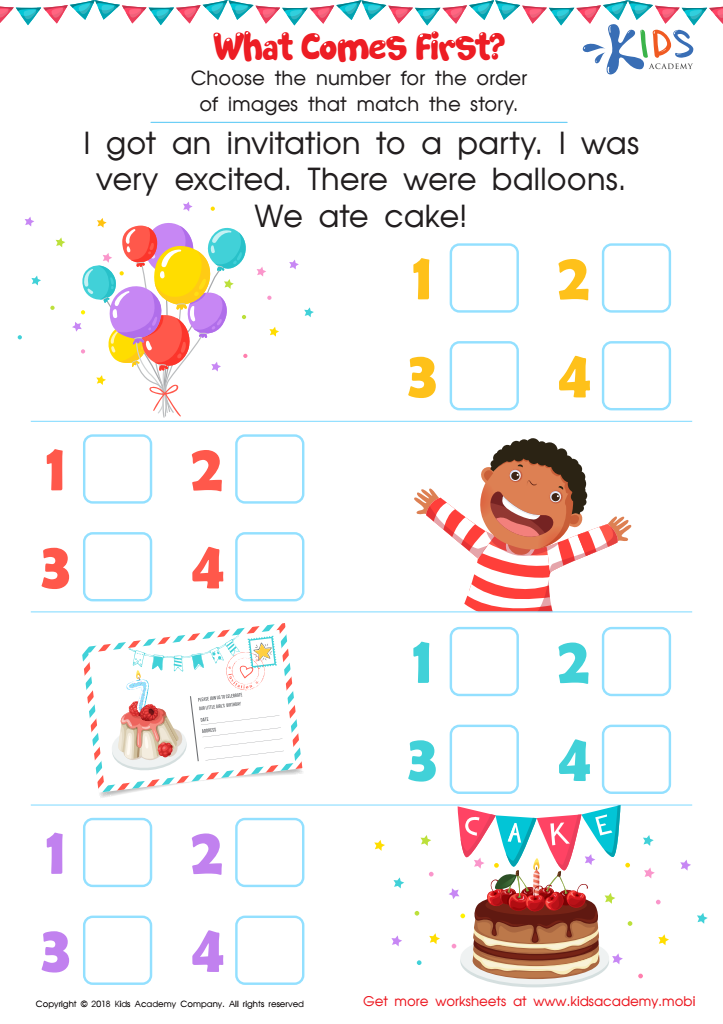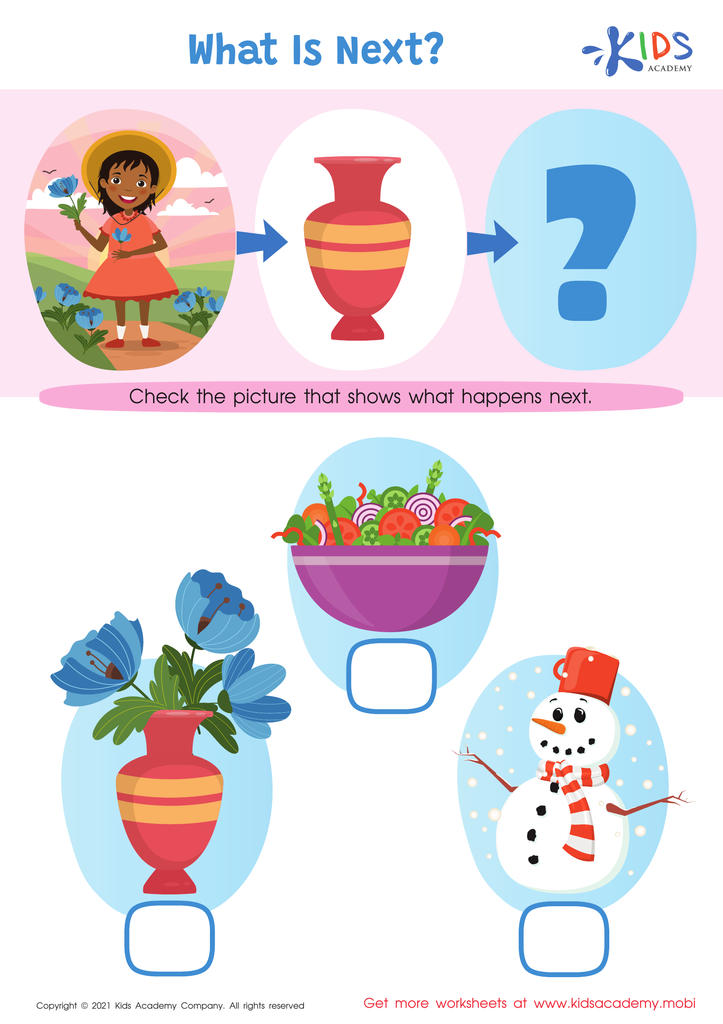Logical thinking Reading Comprehension Worksheets for Ages 4-7
4 filtered results
-
From - To
Enhance your child’s reading comprehension and logical thinking skills with our engaging worksheets designed for ages 4-7! Our carefully crafted activities encourage young learners to analyze information, make connections, and draw conclusions. Featuring vibrant illustrations and age-appropriate texts, these worksheets promote critical thinking through fun exercises that capture children's imagination. Ideal for home or classroom use, they foster curiosity and confidence in reading. Nurture your child's ability to understand context, identify key ideas, and think logically as they read. Explore our collection today and watch your child thrive in their learning journey!


Walk In the Woods: Finding Connections Worksheet


Draw a Line to the Picture Books Worksheet


What Comes First Worksheet


What is Next? Worksheet
Logical thinking and reading comprehension are crucial skills for children aged 4-7, and both parents and teachers play a vital role in fostering these abilities. At this developmental stage, children are beginning to form the foundational skills necessary for future academic success. Logical thinking empowers children to analyze, reason, and make connections between ideas, enhancing their problem-solving abilities.
Reading comprehension at a young age helps children understand and derive meaning from texts, which is essential for their overall literacy development. When children can comprehend what they read, they are better equipped to engage with a variety of subjects, ultimately promoting lifelong learning. Both skills also promote critical thinking, enabling children to understand cause and effect, draw conclusions, and evaluate information.
Parents and teachers should prioritize these competencies, as they not only aid academic achievement but also promote social and emotional development. When children engage with stories and logical challenges, they practice empathy, perspective-taking, and collaboration with peers. Encouraging children’s logical reasoning through interactive reading activities sets a strong basis for future educational experiences and cultivates a curious and resilient mindset. This proactive approach not only benefits individual learners but uplift entire educational communities by fostering a culture of inquiry and engagement.
 Assign to My Students
Assign to My Students





















